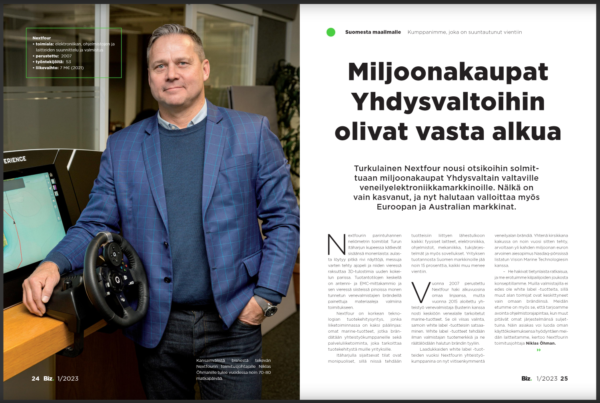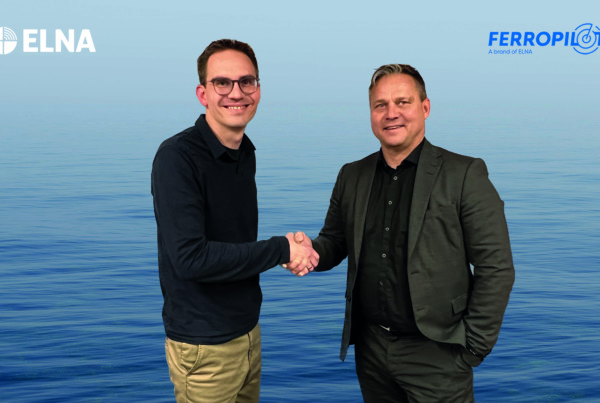Today on the 9th November the world celebrates World Usability Day. To find out what usability at Nextfour means, we talked to UI/UX Designer Hanna Kulmala. She recently talked to students at Turku University of Applied Sciences about the importance of UX and usability design. Here are some of her thoughts summarized:
Life is very different now than what it was 20 years ago: our everyday life is cluttered with endless information and advertisements. This has made us very quick to discard any irritating or needless signals. We want to save time and effort, which means that any product that we come across has to be intuitive and rewarding to use.
Big companies around the world understand this trend and invest heavily in usability and user experience design. We can see how consumer products either make it or break it depending on how well they meet the target audience’s expectations.
Nextfour specializes in product development for demanding environments, for example medical and marine industries. They have traditionally produced very technical and somewhat complicated products, even if their users want a simple solution. Nextfour wants to help these traditional industries make the shift and bring usability to their products.
Of course, a product needs a lot more than usability to become a commercial success. For example, it has to be made with quality and all the features must actually work. But a smooth and rewarding use experience can bring out the best of all product’s other qualities too.
While it may sound funny that by investing more into this part of the project you can actually save money and resources, this statement is not funny at all when you give it some thought. Product development is a slow and iterative process, so you want to make sure that you are doing it right from the start.
User and usability research is an important step before any major project begins. It is crucial to find out who your users are, what preferences and restrictions they have, where the product is going to be used and what problem you are actually trying to solve. It’s easy to think you already know how the product should be but dig a little deeper and you’ll be surprised.
If you decide to skip usability research, you may face some nasty surprises in the end.
You may notice that you decided to develop some features that nobody actually uses. This is a common, yet understandable problem. It’s easy to get carried away with all available technologies. And sometimes you may want to include features that your competitors have just to say that you can do everything that they can too. But developing these features can take a lot of time and you need to ask yourself: can you really afford paying for features that nobody is using.
Another typical problem is that maybe you included the right features, but they are too complicated to use. The cold truth is that if a system or a feature is too complicated to use, people won’t use it. Sometimes your feature might not even be complicated to use but it just doesn’t work in the right way from user’s perspective. This means that you need to redesign the feature, but now you have designed, coded and tested the same feature two times.
Usability can actually be an important safety feature. Especially at Nextfour where we develop a lot of medical devices and systems. Some of them go up to class two. When a device is so closely connected to the patient, it becomes increasingly important that it’s easy and intuitive to use.
Say that you are operating on a patient, and you need to activate a certain function through an interface. If the function is not easily available, you could end up causing harm to the patient while you’re trying to figure out the UI. Same goes for alarms and other important information that needs to be clearly displayed.







